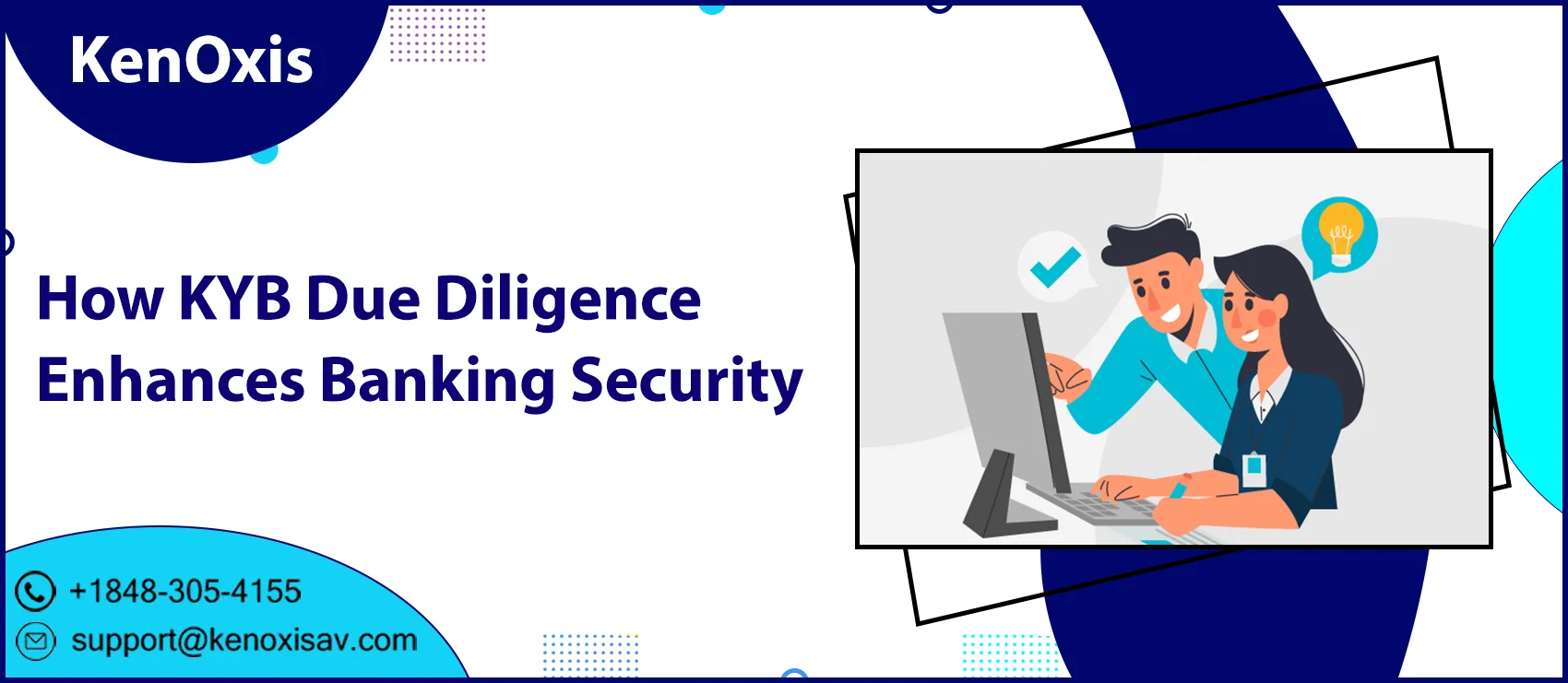Banking and financial institutes are always vulnerable to the scams. They both are the most profitable sectors, but simultaneously, they have to defend themselves from various financial crimes. And that’s why they are spending more than $100 billion in the compliance process with Anti-Money Laundering (AML) and Know-Your-Business (KYB). But as the internet have revolutionized the world and the fintech industry is growing day-by-day, financial institutes and banks need KYB due diligence. To combat money laundering and prevent the integrity of the banking sector.
What is KYB Due Diligence and Why is it Essential?
Due diligence is a process to conduct before joining or buying a new company. It is a must for banks to do customer and business due diligence before onboarding them. Financial institutes verify the individual with customer due diligence (CDD) and verify the company’s with KYB due diligence. KYB due diligence is the enhanced form of business verification. To comply with simple know-your-business regulations, banks attest to the legalization of the companies by verifying their identity proof documents. For business due diligence, banks have to verify the depth of information about the companies, including financial statements, organization shareholders, Ultimate Beneficial Owners (UBOs), and many more.
The regulatory authorities constantly upgrading with time. Many of these changes urge banks and other financial institutes to verify businesses through Enhanced Due Diligence (EDD). EDD helps to detect any suspicious activity, such as money laundering or fraud, and ensure compliance with the latest regulations. It also helps to protect the banks from potential risks. The KYB due diligence ensures companies that the business is real and their UBOs are legal. Banks also use online KYB service providers to screen UBOs against the watchlist to guarantee that they are not involved in any sanctions list. This assists banks in reaping accurate business verification results to the banks through advanced technology.
Types of Due Diligence in Business Verification
KYB verification solution provider guarantees compliance with AML regulations, but these are only the minimum level of the securities. The KYB due diligence can be divided into three grades depending on the business and industry they are working in. The levels change based on the risks determined and the level of security needed for each operation or sector. The level of business verification increases as the industry’s risk increases. For adequate results, business verification services divide due diligence into the following:
Simplified Due Diligence
Simple KYB due diligence is the most basic business verification process. This process is usually performed when the risk connected to money laundering activities is very low. Mostly, this process is very simple and straightforward. It is the same as customer due diligence only the identity verification of the business is needed, not any proof of transactions, financial statements, and other insurance services. Furthermore, in the investigation of B2B companies, if the company is public, an institutional body or listed under the regulatory authorities, the risk will be low and verified with a simplified due diligence process.
Enhanced Due Diligence
The enhanced due diligence verifies companies that are not registered, and banks detect medium-level risks during the onboarding. Most of the time, enhanced due diligence is needed when the bank contract is signed with the commercial business, but it can also be used in onboarding risk-associated businesses. In the enhanced onboarding, all the rigid AML regulations and other sanctions come into play. This process examines the overall information of the companies, including their UBOs and financial statements. In enhanced due diligence, banks verify the business owners by screening them against AML and PEPs sanctions list to ensure they are not involved in illicit activities.
Intensified Due Diligence
Intensified due diligence is usually performed when the company’s transactions are in hefty amounts. Banks usually conduct intensified due diligence on a voluntary basis, particularly in acquisitions or significant deals that are crucial to the company’s survival in the case of an accident brought on by unusual behaviour. This ensures that the banks are not exposed to financial risks or legal liabilities. It also allows banks to accurately assess the risk of doing business with a company. The bolster is also known as the extended version of the enhanced due diligence because after onboarding the company. This is to continue monitoring and detecting suspicious transactions as well as the company’s compliance with the FATF obligations. Where the other KYB due diligence measures are performed at once, it constantly monitors and prevents banks from various financial scams.
Key Takeaways
Financial institutes and banks can use online KYB services for adequate KYB due diligence during onboarding. Digital business verification software utilizes advanced technology to assist companies in reaping accurate results. KYB due diligence measures are essential for preventing fraud and money laundering. Companies should invest in reliable digital business verification software to ensure their safety and security.
